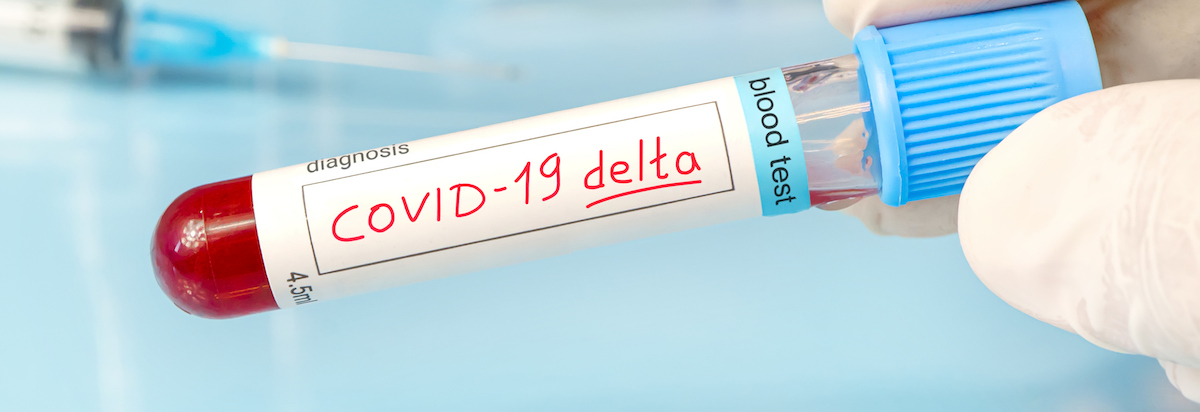<< Back
Why Does the Delta Variant Spread So Fast?

August 05, 2021
People infected with the Delta variant have viral loads up to 1,260 times higher than those infected with COVID-19’s original strain, according to a study at the Guangdong Provincial Center for Disease Control and Prevention in China.
The study confirms what has become increasingly apparent as the variant spreads across the United States: Delta reproduces faster, and spreads faster, than previous COVID-10 strains. It now accounts for 93 percent of the country’s COVID-19 cases.
Researchers found the increased viral load, which assesses the density of viral particles in the body, reduced the time of Delta exposure to a positive PCR test to three to five days, with a peak of 3.71 days. The original strain, based on 2020 data, averaged six days from exposure to positive test, with a range of five to eight days and a peak at 5.61 days.
“What we’re seeing (in Connecticut) is a more fit virus that is able to infect and transmit,” says Dr. Ulysses Wu, Hartford HealthCare’s System Director of Infection Disease and Chief Epidemiologist. “But we have almost 650,000 people dead in our country. This thing’s already pretty darn infective to begin with.”
People infected with the original COVID-19 strain became infectious — capable of spreading the virus — during the 48 hours before testing positive or becoming symptomatic. Those infected with the Delta variant were not only testing positive two days sooner, but they were also significantly more infectious even before their illness was identified.
Scientists who had studied specific mutations within the Delta’s spike protein — which is how the virus enters human cells — had forecast this type of viral reproduction efficiency.
“It’s thought to be at least two or 2.5 times more transmissible than the original variants, which is around where chickenpox is,” says Dr. Wu. “And it’s more than MERS (Middle East Respiratory Syndrome, a viral respiratory illness), SARS (Severe Acute Respiratory Syndrome), Ebola, the common cold, smallpox and seasonal influenza.”
Yet another variant, Delta-plus, has already reached the United States and the United Kingdom after being first identified in Europe in March. South Korea this week said it recorded the first cases of Delta-plus, listed as a “variant of concern” by the World Health Organization. The “plus” designation refers to the spike protein mutation, referred to as K417N.
It’s still too early to determine if Delta-plus is more or less transmissible than Delta or if it would be resistant to currently available vaccines. But, based on preliminary data, antibodies from fully vaccinated people have been effective against the variant.